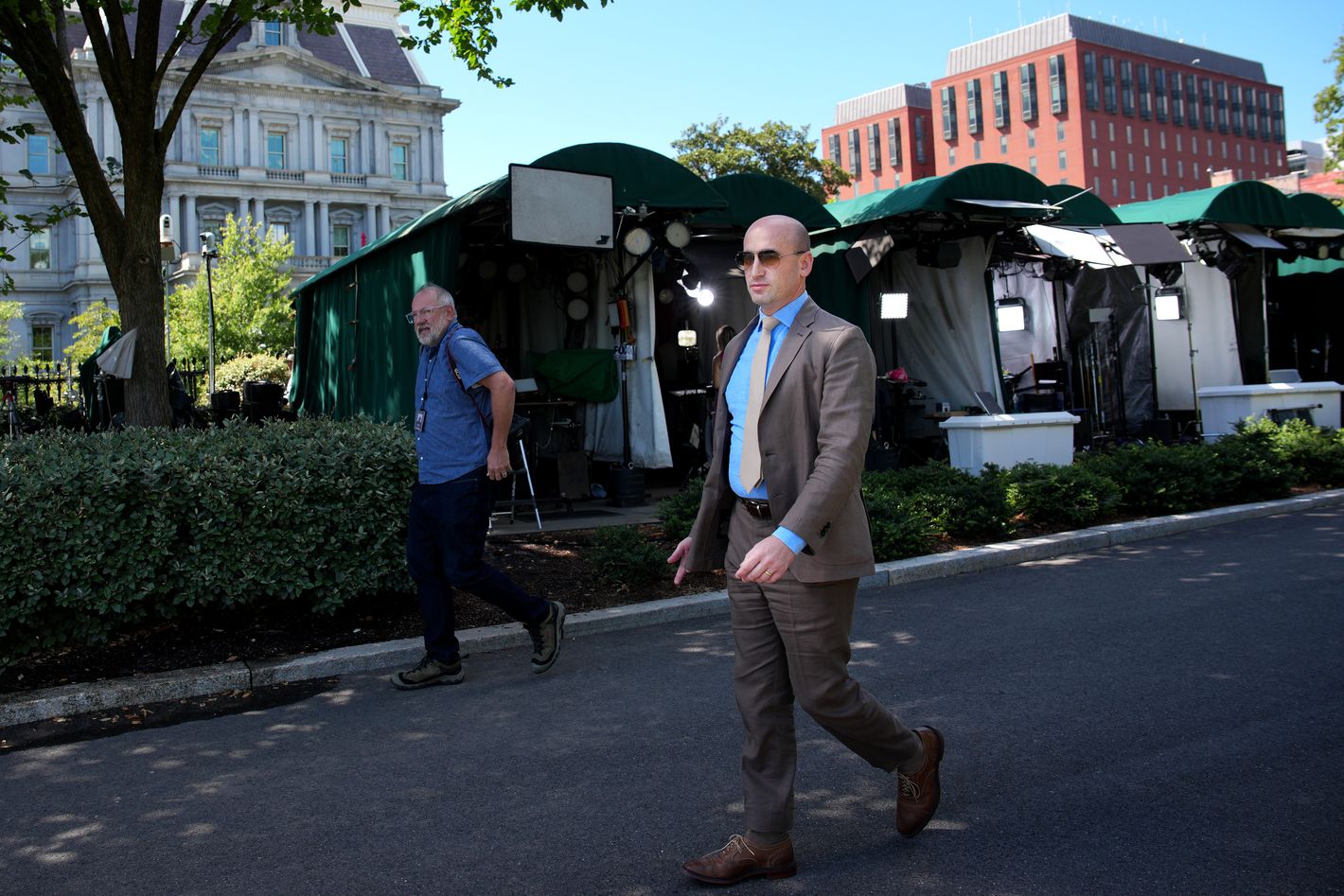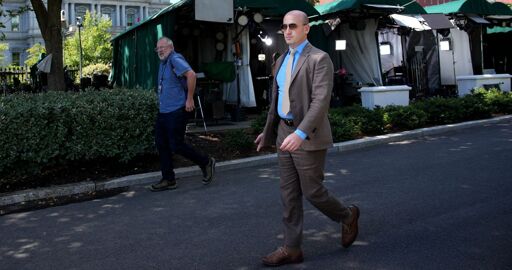 Photo: Kevin Dietsch/Getty Images
Photo: Kevin Dietsch/Getty Images
In May, presidential policy chief and certified nativist Stephen Miller called in all 50 ICE field directors and pitched a temper tantrum, as a source present at the meeting told the Washington Examiner:
“Miller came in there and eviscerated everyone. ‘You guys aren’t doing a good job. You’re horrible leaders.’ He just ripped into everybody. He had nothing positive to say about anybody, shot morale down,” said the first official, who spoke with those in the room that day.
“Stephen Miller wants everybody arrested. ‘Why aren’t you at Home Depot? Why aren’t you at 7-Eleven?’” the official recited.
Miller’s staffers disputed this report, but Miller himself confirmed that he had told ICE they needed to triple the daily number of arrests for undocumented immigrants.
It wasn’t necessary for Miller to spell out the implication that ICE’s earlier policy of focusing arrests on people with prior criminal records was going to have to be trashed in favor of more wholesale roundups of populations that may include undocumented immigrants. Sure enough, ICE, Border Patrol, and Homeland Security Investigations units conducted mass raids in the Los Angeles area in early June, pouring out of rented trucks to grab everyone in sight at Home Depots and 7-Elevens, well-known gathering and pickup stops for day laborers. Media attention on the raids was quickly diverted when Donald Trump used the situation to take over the California National Guard and send U.S. Marine units to “protect” the masked agents conducting roundups that convulsed Greater Los Angeles for weeks.
Then in early July, California-based federal district-court judge Maame Frimpong ordered federal agents to respect traditional Fourth Amendment probable-cause restrictions when targeting immigrants, as NPR reported:
Since early June, agents from Immigration and Customs Enforcement, the Border Patrol and other federal agencies have been roving Los Angeles and surrounding counties arresting thousands of people in what civil rights lawyers characterized in a lawsuit last week as an unconstitutional and “extraordinary campaign of targeting people based on nothing more than the color of their skin.”
In her order, Judge Maame Ewusi-Mensah Frimpong, of the U.S. District Court for the Central District of California, said there is “a mountain of evidence” to support the claim that agents are arresting people solely based on their race, accents, or the work they’re engaged in, in violation of the Fourth Amendment’s protection against unreasonable government seizure.
Now, the conservative majority on the U.S. Supreme Court has overruled Frimpong in one of its signature “shadow docket” orders clearing away lower-court obstacles to whatever the Trump administration wants to do. This means that until there is full litigation of the Fourth Amendment cases, ICE and its comrades can resume uninhibited roundups of “suspected” illegal immigrants — who are suspects strictly because of how they look, how they speak, and where they work. It’s an unprecedented green light for ethnic or racial profiling, and probably the most significant U.S. Supreme Court decision in Trump’s favor this year.
This being a “shadow docket” order rather than a fully argued decision with formal opinions, the majority did not bother to explain its destructive work. But oddly enough, Justice Brett Kavanaugh offered a “concurrence” that defended the order in some truly alarming ways. While some of his claims involved highly technical issues of the plaintiff’s standing to sue, his central arguments were that detentions falling short of formal arrests need to meet a “reasonable cause” rather than a “probable cause” standard, and that Los Angeles is so filled with illegal immigrants that profiling is inescapable.
Kavanaugh’s arguments and the order itself enraged Justice Sonia Sotomayor, writing for the Court’s increasingly isolated liberal bloc (including herself and Justices Elena Kagan and Ketanji Brown Jackson):
The Fourth Amendment … prohibits exactly what the
Government is attempting to do here: seize individuals
based solely on a set of facts that “describe[s] a very large
category of presumably innocent” people. … As the District Court correctly held, the four factors — apparent race or ethnicity, speaking Spanish or English with an accent, location, and type of work — are “no
more indicative of illegal presence in the country than of
legal presence.” The factors also in no way reflect the kind of individualized inquiry the Fourth Amendment demands. … Allowing the seizure of any Latino speaking Spanish at a car wash in Los Ange-
les tramples the constitutional requirement that officers
“must have a particularized and objective basis for suspecting the particular person stopped of criminal activity.”
She also doesn’t have much patience for Kavanaugh’s argument that the sheer number of illegal immigrants makes profiling incidental, quoting Kagan from an earlier case in saying that “aggregate statistics … cannot substitute for the individualized suspicion that the Fourth Amendment requires.”
Sotomayor rightly warns about the consequences of this permission slip to Stephen Miller and his minions:
Countless people in the Los Angeles area have been grabbed, thrown
to the ground, and handcuffed simply because of their looks,
their accents, and the fact they make a living by doing manual labor. Today, the Court needlessly subjects countless
more to these exact same indignities.
There’s zero chance the Trump administration won’t aggressively take advantage of this invitation to sidestep the constitutional protections it often treats as an inconvenience.
More on Politics
Democrats Keep Control of the SenateSenate Nears Much-Needed Deal to Stop Election CoupsUnite the Right Organizers Ordered to Pay $26 Million in Damages
From Intelligencer - Daily News, Politics, Business, and Tech via this RSS feed

